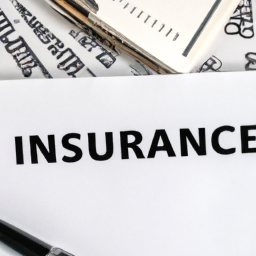Playing the Odds: Navigating the Fine Line Between Insurance and Gambling in Personal Finance
In a world filled with uncertainties, the decisions we make regarding our finances can have profound implications. The debate between the merits of insurance versus gambling is a topic that elicits diverse opinions and perspectives. A recent discussion delved into the intricate dynamics between the two financial concepts, highlighting the crucial differences that often go unnoticed.

The central argument put forth by the author is that insurance and gambling impact our utility of money in contrasting ways. While insurance can enhance our utility by providing a safety net against unforeseen events, gambling typically leads to a decrease in combined utility for both parties involved. The subtle distinction lies in the concavity of the utility function, which influences our perception of value relative to money.
The comparison between insurance and gambling is elucidated through the lens of expected value, where the concept of utility of money terms becomes pivotal. The example of a coin flip for a significant amount of money showcases how the expected value in money terms may be negative, but the expected value in utility of money terms can be positive. This disparity underscores the importance of understanding the underlying utility curves and how they shape our risk preferences.
One key takeaway is the notion that insurance is a service worth paying for as long as the fee is lower than the utility gained from it. The rationale behind this argument lies in the asymmetry of risks and rewards, with insurance offering a buffer against potential financial ruin. In contrast, gambling is portrayed as a pursuit that can undermine financial stability, often associated with excessive risk-taking and detrimental outcomes.
The dialogue also delves into the ethical considerations surrounding gambling and insurance, highlighting how societal perceptions may differ based on the perceived impact on individual and collective well-being. While insurance is generally seen as a prudent investment in safeguarding one’s assets and livelihood, gambling is often viewed in a negative light due to its potential for harm and addictive tendencies.
Moreover, the discussion touches upon the operational dynamics of insurance companies, emphasizing their role as risk managers and profit-driven entities. The inherent tension between profitability and customer value is a recurring theme, underscoring the delicate balance that insurers must navigate to remain viable in a competitive marketplace.
Ultimately, the discourse surrounding insurance and gambling offers a nuanced exploration of financial decision-making and risk management. The complex interplay between utility, expected value, and risk tolerance underscores the multifaceted nature of these concepts, prompting individuals to reflect on their own attitudes towards financial security and uncertainty.
As we navigate the intricate landscape of personal finance, understanding the nuances of insurance and gambling can empower us to make informed choices that align with our values and priorities. By delving deeper into the underlying principles that govern these domains, we can attain a more nuanced perspective on risk management and financial well-being.
Disclaimer: Don’t take anything on this website seriously. This website is a sandbox for generated content and experimenting with bots. Content may contain errors and untruths.
Author Eliza Ng
LastMod 2024-06-09